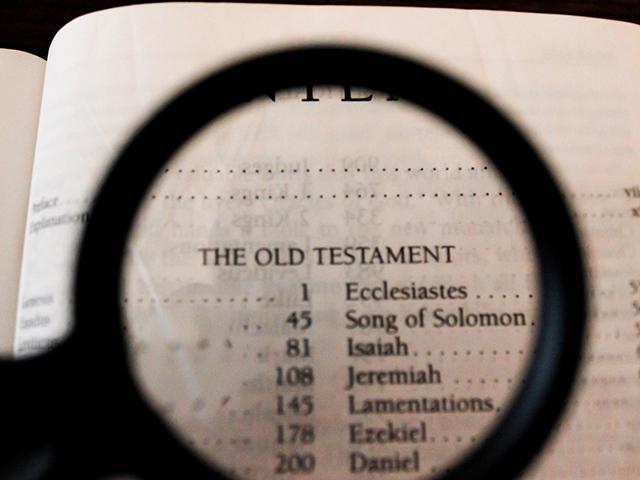Today is the final week of Lectionary Year A. The Church year begins with Advent Sunday and takes us through the seasons as far as the Sunday before Advent, which is called Christ The King Sunday. Our readings for Christ The King Sunday this year are as follows:
- Ezekiel 34:11-16, 20-24
- Psalm 95:1-7a or Psalm 100
- Ephesians 1:15-23
- Matthew 25:31-46
These readings can all be read online here.
Ezekiel 34
Much of the imagery in the New Testament comes from rich seams in the Old Testament – look particularly at the “I am” statements of Jesus in John’s Gospel. Whenever Jesus claims a title for himself he does so not as an idea plucked out of thin air, but as an idea long-embedded in the familiar Scriptures of his hearers. Jesus takes and owns these titles for himself because they belong to God.
Psalm 23 is one of the most well-known passages of Scripture ever, and its popularity at funerals is understandable. Yet it is not the only reference to the idea of God as shepherd. They begin as far back as Cain and Abel (Abel was a ‘keeper of the sheep’); Abraham, Isaac and Jacob all shared this role. Moses too had been tending sheep when confronted by the burning bush, and David – the author of Psalm 23 – was of course a humble shepherd boy when he was appointed and anointed by Samuel to be the future King. The other important Psalm references to Sheep and Shepherds can be found in Psalms 28, 44, 49, 74, 78, 80, 95, 100 and 119.
Music choice for today – a piece which will be sung in churches and cathedrals countrywide during Advent – The Advent Antiphon ‘Matin Responsory’ by Palestrina. Listen out for the quote from Psalm 80.
The passage in Ezekiel is important to us because God announces through the prophets that a new Shepherd will one day come ‘from the line of David’ – and so into that sense of expectation Jesus later announces “I am the good shepherd”.
Yet it doesn’t stop at Jesus. The post-resurrection conversations with the disciples who will build Christ’s church are for us too. “Feed my lambs…take care of my sheep” says Jesus to Peter in John 21. That’s a call for us too.
Psalm 95
This Psalm is otherwise known as The Venite – a Psalm traditionally sung at Morning Prayer. The word ‘Venite’, of course, means “O Come” – the opening words of the Psalm. Why do we come together? We come together to praise God!
Take a moment to read through this Psalm and count the number of reasons given by the Psalmist to praise God. But notice then that the crescendo builds to the phrases “the people of his pasture” and “the sheep of his hand”.
My Shepherd is the Lord! Join me in worship!
Two contrasting musical versions for you – a traditional version sung to a chant by a cathedral choir, and a reggae version sung by the incomparable Grace Thrillers gospel band.
Psalm 100
This Psalm is otherwise known as The Jubilate – a Psalm also traditionally sung at Morning Prayer. The word ‘Jubilate’, of course, means “O Be Joyful” – the opening words of the Psalm. The word might also be familiar to folk who sang the popular “Hebrew-style” Jubilate Everybody back in the 1980s. The word is etymologically linked to various English words too.
In terms of content, the Psalmist is on a similar theme to the words of Psalm 95 above. The call is to ‘be joyful’ and ‘worship the Lord’, and the reasons for doing so are again listed. Notably for us today, “we are his people” and we are “the sheep of his pasture”.
Shepherding was a career of notoriously low reputation, as we read in Philo’s writings (c. 50 BC to 50 AD), which makes it all the more remarkable that God’s people use such imagery to sing of God, remarkable that shepherds were chosen to be the first to witness the birth of Jesus, and remarkable that Jesus would ultimately take that title for himself.
I read with joy today of an initiative called a “tuneless choir”. It is widely known that people love to sing together, but we can’t all sing like Celine Dion or Andrea Bocelli. The idea of the Tuneless Choir is that it is completely unconditional and inclusive. People with dementia, people with learning difficulties, people who couldn’t hold a note if they grasped it with both hands – all are welcome to sing along as robustly as they please.
Surely that is singing joyfully!
Ephesians 1
How effective is your evangelisation as a church? Paul’s letters tell us that there is nothing more praiseworthy, or no indication more healthy, than a church fellowship that has a reputation for its faith and love. Have you seen that church over there? They are so full of faith, they literally live what they say, and their love – not just for one another but for every stranger that comes by – is so palpable that I just have to tell others about it! When Paul hears of such reputations doing the rounds, he gives thanks to God, and then writes to the Church to tell them what he has heard.
We have a trinitarian prayer in the next section, as Paul writes “I pray that the God of our Lord Jesus Christ, the Father of glory, may give you a spirit of wisdom and revelation” and we note that “Father of glory” is an unusual phrase. The sense of ‘glory’ is close to the overshadowing presence of God in the burning bush, or in the pillar of fire and cloud, or on Mt Sinai, or at Jesus’ Tranfiguration, and this helps us to understand the prayer for wisdom and enlightenment that comes from God and not from human effort.
It is then that we understand the reason for Paul’s prayer – a prayer we can pray too – that our hearts might be opened (“enlightened”) to know the hope of our glorious inheritance as people of faith.
Matthew 25
In this, our third reading in consecutive weeks from Matthew 25, we reach the familiar parable of sheep and goats. Not only do we have a shepherding image at the start which connects us to other readings today, but we have another watching and waiting story as we have had on prevous weeks.
The shepherding imagery concerns the shepherd who separates sheep and goats. In Bible lands and times these scraggy animals wouldn’t have been quite as easy to separate as the fluffy white lambs and coarse-haired goats of today’s farms, so it required manual sorting, thus giving the image of the Son of Man separating people from one another a more individualised context.
The parallel imagery continues for a moment longer, however, because in the parable, the people become sheep and goats as they are sorted with the righteous sheep going to the right and the wayward goats going to the left. In passing, the “right hand” always signified the “favoured ones” – see for example the hands used by dying patriarchs as they chose to bless their adult children.
What’s interesting about this particular story about watching and waiting is that the characters in the story don’t know that they are in the story – they don’t know that they are the ones watching and waiting. Suddenly the Son of Man calls them to account for the previous behaviour and they hadn’t realised that their previous behaviour was going to be assessed.
I saw a wonderful story recently of a man who was being interviewed for a high-powered job in the city and was told that he had blown the interview even before he had been asked the first question. Little did he realise that the CEO of the company had disguised herself as the front desk receptionist. The man had swaggered in to the building, not even making eye contact with the receptionist, treating her like dirt as he mansplained his way to the interview waiting area. It was only when the men in suits stood up to greet the CEO, when she finally entered the room to take up the vacant seat behind the interview table, that the man realised what he had done. [Tip to interview candiates: treat every member of the team from cleaner to executive as your boss!]
I find Paul’s opening words to the Ephesians helpful (above) as he prays for God’s Spirit to bring wisdom and enlightenment. When the eyes of your heart are open, then you can see Christ in “the very least of these my children” and respond accordingly.
Grace and peace,
Stephen
This concludes the series “Words on the Word”. To those who have been with me for the past seven months and 50,000 words, I thank you for journeying with me through the Lectionary Readings this year. God bless you.






